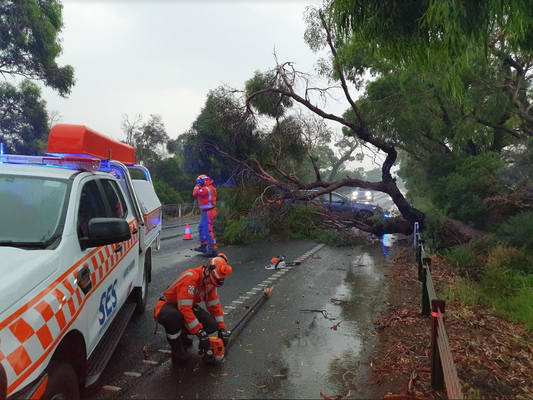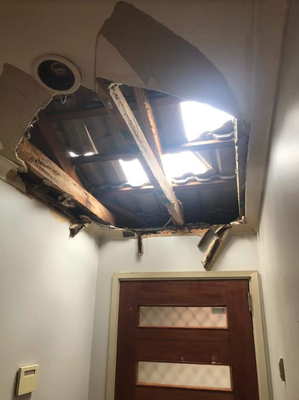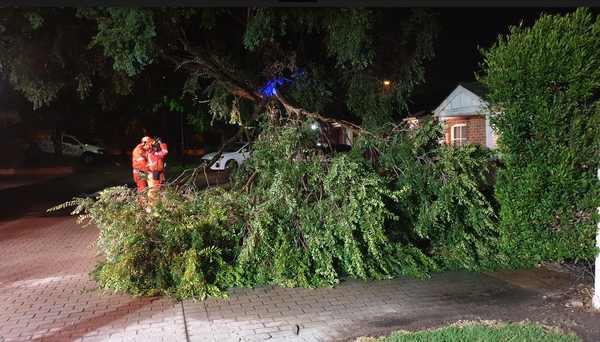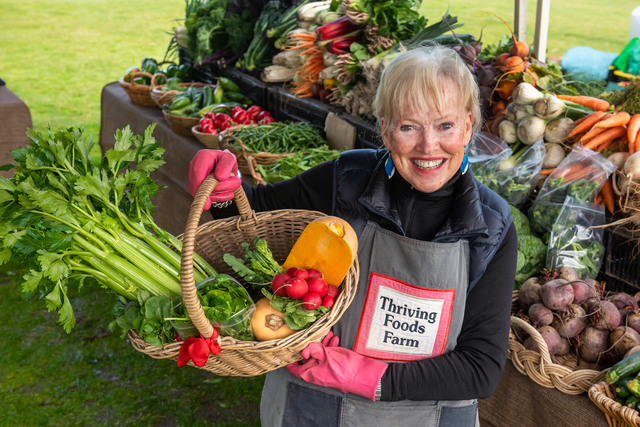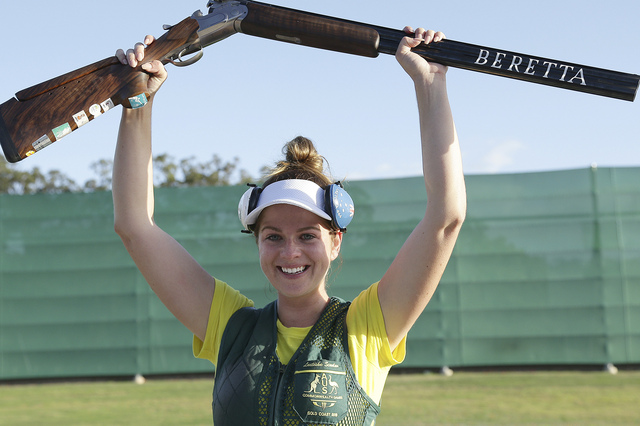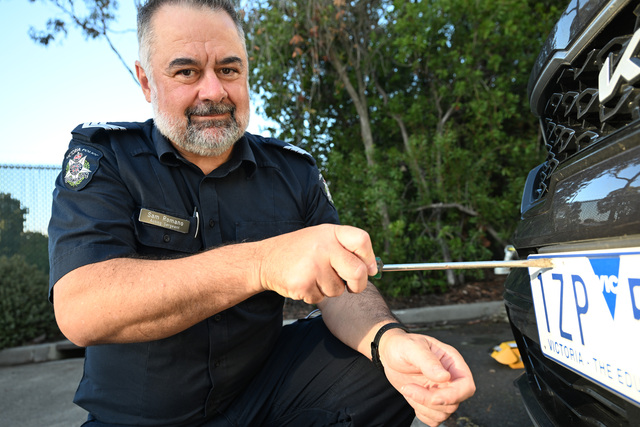A big clean-up begun after wild weather lashed the region on Wednesday afternoon, 15 January.
Residents were chocked by smoke blowing in from the bushfires raging in East Gippsland and sweltering temperatures – which was replaced by the downpour about 5pm.
Narre Warren State Emergency Service received eight calls for help after severe thunderstorms brought flash flooding and caused trees to fall onto roads.
This included a large tree which blocked a driveway and damaged a car in Lynbrook about 10pm where SES crews worked during the night using chainsaws to clear the tree.
Two trees came down on Baxter-Tooradin Road in Cannons Creek during peak hour while flash flooding on Pound Road in Hampton Park caused chaos.
Another job on Thursday morning, 16 January saw a roof collapse in Hampton Park.
Senior forecaster Rod Dickson from the Bureau of Meteorology in Melbourne said the highest rainfall in the southeast was 30 to 37 millimetres in Keysborough.
Ten millimetres of rain fell in Officer, while 11 millimetres of rainfall was recorded in Cardinia, and 18 millimetres in Berwick.
“There was damaging winds associated with the thunderstorms but most of the reports were reported over the northern and western side of the city,” Mr Dickson said.
Avalon was smacked with the strongest wind gusts – which reached up to 113km/h.
“Those more intense storms had probably weakened a little bit by the time they got over to Casey,” he said.
“We don’t have a lot of observation sites down past about Moorabbin,” he said, which received wind gusts up to 70km/h.
“The rain helped cleared the air a little bit but we’ve still got some general smoke haze less today (16 January).”
Meanwhile, P2 face masks were made compulsory for all Australia Post staff working outdoors where the air quality was rated as “very poor or hazardous.”
“The safety of our people is our highest priority and we’re continuing to monitor areas with poor air quality closely,” an Australia Post spokesperson said.
“We’ve told our people that if they’re sensitive to poor air quality, feeling unwell, or simply don’t feel safe being outdoors, that indoor work can be provided as an alternative.”
Ambulance Victoria said it was called to 232 breathing problem cases state-wide on 15 January – which was a 24 per cent increase on the annual daily average.
The deluge did not impact the Cranbourne or Pakenham train lines, however a Metro spokesperson said at 5.40pm an equipment issue caused by lightning near Victoria Park Station resulted in 26 replacement buses. And a lightning strike near Richmond caused trains to be stopped between Flinders St and Burnley.

